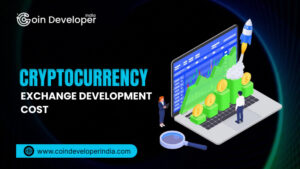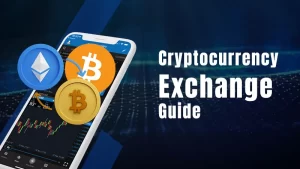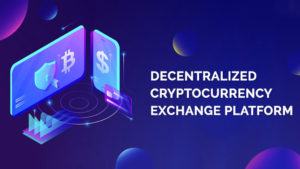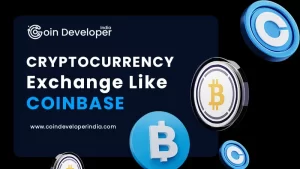The crypto exchange market is expected to grow from $34.97 billion in 2023 to $109.1 billion in 2028 at a rate of 25.55%. The market is then expected to grow at a CAGR of 26.40% from 2028 and reach $352.02 billion in 2033.
Cryptocurrency trading platforms like Delta Exchange are revolutionizing how traders interact with digital assets. Whether it’s futures, perpetual contracts, or spot trading, Delta Exchange offers a high-performance environment tailored to serious investors and institutional traders.
If you’re planning to build an exchange like Delta Exchange, this detailed guide walks you through every step of the crypto trading platform development process.
This blog explores how to build a crypto trading platform, outlines core features, explains the tech stack, and examines the cost and strategic steps for Delta Exchange clone development.
Why Build Exchange Like Delta Exchange?
Building a crypto trading platform like Delta Exchange offers a strategic advantage for entrepreneurs aiming to enter the rapidly expanding digital asset market.
Delta Exchange has carved a niche for itself with its robust derivatives trading capabilities, intuitive user interface, and highly secure infrastructure features that resonate strongly with both retail and institutional traders.
By developing a similar platform, you can tap into the booming crypto derivatives market, which continues to attract massive investor interest due to high-profit potential and market volatility.
Additionally, offering diverse financial instruments such as futures, perpetual contracts, and options positions your exchange as a one-stop solution for advanced trading strategies.
A Delta-like platform also ensures scalability and international appeal, enabling you to attract global users seeking a secure and performance-driven environment.
If you’re considering how to build a crypto exchange like Delta Exchange, understanding its core strengths and user-centric architecture is the first step toward launching a successful trading platform.
Step-by-Step Process to Build Exchange Like Delta Exchange
You must be curious about how to develop a crypto exchange like Delta. Here is the complete crypto trading platform development process, from research to post-launch. Following these steps helps ensure your Delta Exchange clone is secure, scalable, compliant, and ready to deliver a seamless trading experience for diverse users.
Step 1: Conduct Market Research & Define Your USP
Thorough research helps identify trader needs, competitor gaps, and revenue models. Defining a strong, unique selling proposition (USP) ensures your platform offers differentiated value, like specialized derivatives or DeFi integrations, to stand out in a competitive market.
Step 2: Choose the Right Blockchain Development Firm
Partnering with an experienced blockchain development company ensures secure architecture, robust backend, wallet integration, and KYC/AML compliance. A reliable partner will guide you from design to deployment, minimizing risks and accelerating your platform’s time-to-market.
Step 3: Decide Between Custom vs. White-Label Solutions
Choosing between a custom build and a white-label clone depends on budget and time. White-label clones enable faster launch and cost savings, while custom development offers complete control, flexibility, and long-term scalability for your crypto exchange.
Step 4: Architecture Planning & Tech Stack Selection
Choosing the right tech stack is essential for performance, scalability, and security. Plan the architecture with modern frameworks like React, Node.js, and blockchain platforms such as Ethereum or BSC to ensure a reliable trading experience.
Step 5: Core Features of a Delta Exchange Clone
This section highlights must-have features like the trading engine, wallet, admin dashboard, and security. Including essential functionalities ensures your Delta Exchange clone delivers seamless trading, secure transactions, and full control for users and platform admins alike.
Step 6: Design a High-Performance UI/UX
User interface design must be clean, fast, and responsive. Prioritize real-time data display, dark/light themes, and multilingual support to offer a premium experience that keeps traders engaged and builds credibility in competitive crypto markets.
Step 7: Testing & QA
Comprehensive testing ensures platform reliability and user trust. Perform unit, load, and penetration testing to validate features, uncover bugs, and safeguard against vulnerabilities before launching your Delta Exchange clone to the public.
Step 8: Deployment & Cloud Hosting
Deploy your platform on reliable cloud infrastructure like AWS or Google Cloud. Use scalable architecture, content delivery networks (CDNs), and disaster recovery systems to support growing user demand and ensure platform uptime and performance.
Step 9: Launch Strategy
A strategic launch boosts early traction. Run bounty campaigns, list your platform on CoinMarketCap, and build social community engagement. Attract users through marketing, partnerships, and incentives to ensure a strong initial user base and liquidity.
Step 10: Post-Launch Support & Feature Upgrades
After launch, collect user feedback and introduce new features like mobile apps or NFT modules. Continuous updates, support, and scalability are vital for long-term success and retaining users in the fast-paced crypto trading space.
Cost to Build Exchange Like Delta Exchange
The cost of Delta Exchange clone development depends on the features you want to incorporate. Below are some of the major features that will impact the cost to build exchange like Delta exchange.
| Feature | Estimated Cost Range |
| MVP (White-label Clone) | $20,000 – $35,000 |
| Custom Platform | $50,000 – $100,000+ |
| Mobile Apps | $10,000 – $25,000 |
| Smart Contracts & Wallets | $10,000 – $20,000 |
| Testing & Security Audits | $8,000 – $15,000 |
Advantages of Delta Exchange Clone Development
Delta exchange clone development comes with various advantages. Below are some of the major benefits of this crypto exchange development.
1. Speed to Market
Delta Exchange clone development accelerates your platform launch by using pre-built architecture. This enables you to enter the market quickly, gain early traction, and start operations while competitors are still in the development phase.
2. Lower Cost
Clone development significantly reduces costs by leveraging existing frameworks. You avoid the high expenses of building from scratch while still receiving a reliable, feature-rich platform with room for customization and scalability as your business grows.
3. Battle-Tested Architecture
Using a tried-and-tested architecture minimizes development errors and ensures higher system stability. The platform design is already optimized through real-world usage, reducing the chances of bugs, crashes, or performance bottlenecks post-launch.
4. Customizable UI & Features
Delta Exchange clone scripts are designed for modular upgrades. This means you can start with a basic version and gradually integrate advanced functionalities and design elements based on user feedback, market trends, and business expansion goals.
5. Secure and Scalable
Security and scalability are embedded in the clone architecture. It includes multi-layer security protocols, wallet integration, and a robust trading engine, ensuring that your platform can handle high-volume transactions safely as your user base expands.
Final Thoughts
As crypto markets mature, building a high-performance trading platform can be highly profitable. If you’re planning to build exchange like Delta Exchange, choosing the right tech partner and architecture is key.
From white-label Delta Exchange clone development to fully custom crypto platforms, you now know how to build a crypto trading platform that delivers both performance and profitability.
If you are looking for a leading cryptocurrency exchange development company, Coin Developer India can be your partner. Let us help you launch your dream exchange with cutting-edge features, airtight security, and expert guidance.
So, connect with our developers now and discuss your requirements!
Frequently Asked Questions
Q1. How much does it cost to develop a crypto exchange like Delta?
The development cost typically ranges from $30,000 to $100,000+, based on the features, blockchain selection, technology stack, and degree of customization required.
White-label solutions tend to be more affordable and faster to launch, while fully custom platforms involve more resources, time, and security audits. The final pricing can also fluctuate depending on integrations like advanced trading charts, multi-chain wallet support, and liquidity APIs.
Q2. Is it legal to build a crypto trading platform?
Yes, it is legal to build a crypto trading platform in most countries, provided you comply with local regulations. Ensure your exchange integrates KYC (Know Your Customer), AML (Anti-Money Laundering), and other financial regulations that vary by jurisdiction.
Licensing and registration may be necessary in regions like the U.S., EU, or UAE. Legal consultation is advised to ensure complete compliance before launch.
Q3. How long does Delta Exchange clone development take?
The time to develop a Delta Exchange clone varies based on approach. White-label solutions usually take 3–5 weeks, offering quicker time-to-market. However, custom development can take 3–5 months or more, depending on platform complexity, UI/UX customization, testing phases, and feature depth.
This includes time for backend architecture, smart contract integration, wallet development, and rigorous QA testing for performance and security.
Q4. What makes Delta Exchange clone development popular?
Delta Exchange clone development is popular due to its proven reliability, lower development costs, and faster go-to-market capability. It offers entrepreneurs a ready-made, battle-tested trading infrastructure that can be customized for branding, features, and security.
With prebuilt modules like trading engines, wallets, and dashboards, clone solutions reduce risks and speed up deployment making them ideal for startups and mid-size firms entering crypto trading.
Q5. How to choose the right blockchain for crypto trading platform development?
Choosing the right blockchain depends on your platform’s goals. Ethereum and Binance Smart Chain (BSC) are popular due to their liquidity, security, and developer communities. Consider key factors like transaction speed, fees, smart contract support, scalability, and user demand.
Solana or Polygon may also be ideal for high-frequency, low-latency trading. Ultimately, choose a chain that aligns with your technical requirements and target market.








